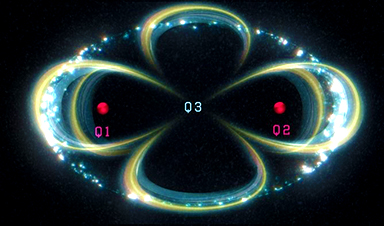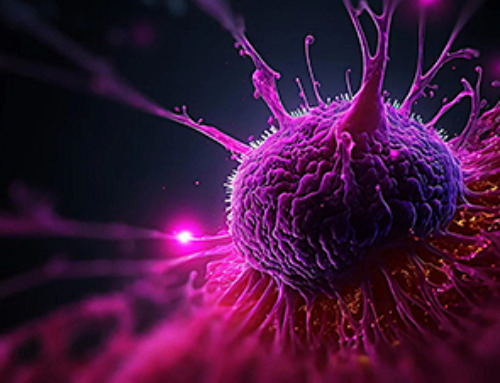| Tiny quantum computing processors built from silicon have finally surpassed 99 percent fidelity in certain logic operations (“gates”). Quantum computers store information in the quantum state of a physical system (in this case, two silicon qubits) then manipulate the quantum state to perform a calculation in a manner that isn’t possible on a classical computer. | |
| Fidelity is a measure of how close the final quantum state of the real-life qubits is to the ideal case. If the fidelity of logic gates is too low, calculations will fail because errors will accumulate faster than they can be corrected. The threshold for fault-tolerant quantum computing is over 99 percent. | |
| Three research groups demonstrated more than 99 percent fidelity for “if-then” logic gates between two silicon qubits (Nature, “Precision tomography of a three-qubit donor quantum processor in silicon”). This required precisely measuring failure rates, identifying the nature and cause of the errors, and fine-tuning the devices. |
| The researchers used a technique called gate set tomography to achieve this in two of the three experiments. The technique combined the results of many separate experiments to create a detailed snapshot of the errors in each logic gate. | |
| The researchers were able to make a precise determination of the error generated by different sources and fine-tune the gates to achieve error rates below 1 percent. | |
| Quantum computing may be able to solve certain problems, such as predicting the behavior of new molecules, far faster than today’s computers. To do so, researchers must build qubits, engineer precise couplings between them, and scale up systems to thousands or millions of qubits. | |
| Researchers expect qubits made of silicon to scale up better than the qubits used in today’s testbed quantum computers, which rely on either trapped ions or superconducting circuits. | |
| Achieving high-fidelity logic gates opens the door to silicon-based testbed quantum computers. It also demonstrates the power of detailed error characterization to help users pinpoint error modes then work around or eliminate them. | |
| Qubits – protected, controllable 2-state quantum systems – lie at the heart of quantum computing. Quantum computing processors are built by assembling an array of at least two (and hopefully someday thousands or millions) of qubits, with an integrated control system that can perform logic gates on each qubit and between pairs of qubits. Their performance and capability are limited by errors in the logic gates. | |
| High-fidelity gates have low error rates. Once the error rate is less than a certain threshold – which scientists believe to be about 1 percent – quantum error correction can, in principle, reduce it even further. Beating this threshold in laboratory experiments is a major milestone for any qubit technology. | |
| What kinds of errors are occurring is also a big deal for quantum error correction. Some errors are easier to eliminate or correct; others may be fatal. Quantum computing researchers from the Department of Energy (DOE)-funded Quantum Performance Laboratory worked with Australian experimental physicists to design a new kind of gate set tomography customized to a 3-qubit silicon qubit processor. They used it to measure the rates of 240 distinct types of possible errors on each of six logic gates. Of those possible errors, 95 percent did not occur in the experiments, and the remaining errors added up to less than 1 percent infidelity. | |
| Research groups in Japan and the Netherlands reported similar results simultaneously, with the Dutch group also using the DOE-funded pyGSTi gate set tomography software to confirm their demonstration. |
News
Microplastics found in prostate tumors in small study
In a new study, researchers found microplastics deep inside prostate cancer tumors, raising more questions about the role the ubiquitous pollutants play in public health. The findings — which come from a small study of 10 [...]
All blue-eyed people have this one thing in common
All Blue-Eyed People Have This One Thing In Common Blue Eyes Aren’t Random—Research Traces Them Back to One Prehistoric Human It sounds like a myth at first — something you’d hear in a folklore [...]
Scientists reveal how exercise protects the brain from Alzheimer’s
Researchers at UC San Francisco have identified a biological process that may explain why exercise sharpens thinking and memory. Their findings suggest that physical activity strengthens the brain's built in defense system, helping protect [...]
NanoMedical Brain/Cloud Interface – Explorations and Implications. A new book from Frank Boehm
New book from Frank Boehm, NanoappsMedical Inc Founder: This book explores the future hypothetical possibility that the cerebral cortex of the human brain might be seamlessly, safely, and securely connected with the Cloud via [...]
Deadly Pancreatic Cancer Found To “Wire Itself” Into the Body’s Nerves
A newly discovered link between pancreatic cancer and neural signaling reveals a promising drug target that slows tumor growth by blocking glutamate uptake. Pancreatic cancer is among the most deadly cancers, and scientists are [...]
This Simple Brain Exercise May Protect Against Dementia for 20 Years
A long-running study following thousands of older adults suggests that a relatively brief period of targeted brain training may have effects that last decades. Starting in the late 1990s, close to 3,000 older adults [...]
Scientists Crack a 50-Year Tissue Mystery With Major Cancer Implications
Researchers have resolved a 50-year-old scientific mystery by identifying the molecular mechanism that allows tissues to regenerate after severe damage. The discovery could help guide future treatments aimed at reducing the risk of cancer [...]
This New Blood Test Can Detect Cancer Before Tumors Appear
A new CRISPR-powered light sensor can detect the faintest whispers of cancer in a single drop of blood. Scientists have created an advanced light-based sensor capable of identifying extremely small amounts of cancer biomarkers [...]
Blindness Breakthrough? This Snail Regrows Eyes in 30 Days
A snail that regrows its eyes may hold the genetic clues to restoring human sight. Human eyes are intricate organs that cannot regrow once damaged. Surprisingly, they share key structural features with the eyes [...]
This Is Why the Same Virus Hits People So Differently
Scientists have mapped how genetics and life experiences leave lasting epigenetic marks on immune cells. The discovery helps explain why people respond so differently to the same infections and could lead to more personalized [...]
Rejuvenating neurons restores learning and memory in mice
EPFL scientists report that briefly switching on three “reprogramming” genes in a small set of memory-trace neurons restored memory in aged mice and in mouse models of Alzheimer’s disease to level of healthy young [...]
New book from Nanoappsmedical Inc. – Global Health Care Equivalency
A new book by Frank Boehm, NanoappsMedical Inc. Founder. This groundbreaking volume explores the vision of a Global Health Care Equivalency (GHCE) system powered by artificial intelligence and quantum computing technologies, operating on secure [...]
New Molecule Blocks Deadliest Brain Cancer at Its Genetic Root
Researchers have identified a molecule that disrupts a critical gene in glioblastoma. Scientists at the UVA Comprehensive Cancer Center say they have found a small molecule that can shut down a gene tied to glioblastoma, a [...]
Scientists Finally Solve a 30-Year-Old Cancer Mystery Hidden in Rye Pollen
Nearly 30 years after rye pollen molecules were shown to slow tumor growth in animals, scientists have finally determined their exact three-dimensional structures. Nearly 30 years ago, researchers noticed something surprising in rye pollen: [...]
How lipid nanoparticles carrying vaccines release their cargo
A study from FAU has shown that lipid nanoparticles restructure their membrane significantly after being absorbed into a cell and ending up in an acidic environment. Vaccines and other medicines are often packed in [...]
New book from NanoappsMedical Inc – Molecular Manufacturing: The Future of Nanomedicine
This book explores the revolutionary potential of atomically precise manufacturing technologies to transform global healthcare, as well as practically every other sector across society. This forward-thinking volume examines how envisaged Factory@Home systems might enable the cost-effective [...]





















